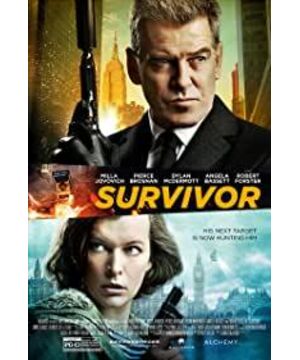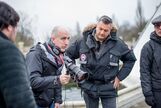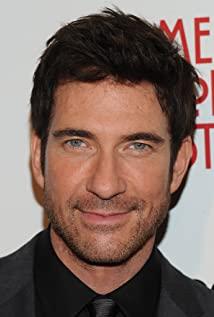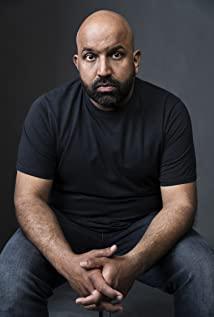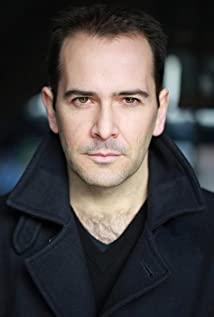When one of the poorest countries in the world encounters the most dangerous virus in human history, what should it do?
World Chinese Weekly Columnist: Linghu Kong
A few days ago, "the country with the weakest health system in the world" was on the trending search.
There are 7.5 million people in this country, 15 confirmed cases and only one life-saving ventilator. Ventilators, also known as "electronic pumps", play a vital role in treating severe patients with new coronary pneumonia. According to statistics from the American College of Respiratory Medicine, the use of a ventilator can increase the success rate of clinical rescue by about 55%. At present, countries in Europe and the United States are rushing for ventilators, and the Governor of New York and Trump have made a lot of talk.
And this country with only one ventilator makes all those who hear it worry.
A country defined by tragedy This country is called Sierra Leone , located on the Atlantic coast of West Africa, one of the least developed countries in the world that most people have never heard of.
It is worth mentioning that Han Wentao, the husband of Zhang Jingjing, a nurse who died in Hubei, was a staff member of China's aid to Sierra Leone.
Sierra Leone used to be a source of European slave supply. In the 1990s, a civil war that lasted for more than ten years broke out. It was not until 2002 that it entered peace.
Years of war have collapsed Sierra Leone's economy, and it lags far behind the world in every way. After the war, they used foreign aid to start a difficult reconstruction.
▲ Freetown, the capital of Sierra Leone
However, the disaster seems to be particularly "favored" for the country. Since May 2014, the Ebola epidemic has swept Sierra Leone again.
Ebola virus has a biosafety level of 4, which is one level higher than AIDS, and its fatality rate is as high as 50% to 90%.
When one of the world's poorest countries encountered the most dangerous virus in human history, it attracted the world's attention.
▲ Ebola virus
Some western media directly promote it as "area defined by tragedy" . Some media also sighed with sympathy: "Ebola can only be dealt with with ignorance and fear."
I don’t know if you have ever thought about a question: How do those who are sympathized feel?
That must be a bad taste. Which country would like to be called a "tragedy". And this kind of overhead report does not help the fight against the epidemic.
As Sierra Leonean filmmaker Arthur Platt put it:
"This focus does not paint a complete picture of how the people of our country are affected by the disease, and the role we Africans play in fighting the outbreak is grossly underestimated."
In order to change this misunderstanding, he and some friends bravely recorded the stories around them during the Ebola epidemic, and wanted the outside world to feel the development of the epidemic from the perspective of the people of Sierra Leone.
▲ "Survivor" poster, released in mainland China on March 31, 2020
The documentary, called "Survivor," was short-listed for several international awards despite its rough production, allowing the world to see the extraordinary story of Sierra Leone's fight against Ebola.
"Highly Paid" Nurses
At the beginning of the documentary, there is a series of shocking data: the outbreak began in February 2014. The epidemic lasted for 21 months, more than 28,000 people were infected, and more than 11,000 people died.
The documentary features three protagonists, including Margaret Thursey, a nurse working in the emergency department for Ebola in Freetown. She secretly concealed her work for fear of opposition from her family. Before the Ebola outbreak, Sierra Leone had only one or two doctors per 100,000 people. In order to better cope with the epidemic, the hospital offered a "high salary" of $100 a week to recruit nurses. But compared to life, this amount of money is really insignificant. During a shift, you may be infected with the virus.
The way they dealt with the epidemic is very much like how we dealt with the new crown virus at the beginning of the year. But the facilities are more rudimentary, medical care is more scarce, ordinary people have no protection, and the tents that are temporarily set up are particularly shabby.
The warnings circulated on the radio and television: "Comrades, the country is in a state of public emergency, Ebola is real, we must stop its spread, God Bless Sierra Leone."
Medical staff wash their bodies with ultra-high-concentration chlorinated water every day, even their clothes, mobile phones, and cars. Over time, the clothes fade as a result.
Because they were wearing protective clothing, in order to distinguish each other, the doctors and nurses also wrote their names on each other's protective clothing. Then bravely walked into the ward and had zero-distance contact with the patient.
Remember Hu Ming, director of the ICU of Wuhan Pulmonary Hospital, who suddenly cried during the interview? He received a call that a friend who was also a doctor was infected.
For Margaret, the most frustrating thing about her was the loss of a colleague. It's not one death, but one photo after another of a colleague who passed away.
During the outbreak, 656 medical staff responded to more than 20,000 patients, and the death rate of medical staff reached a staggering one in sixteen.
Every medical staff bears the pain of losing a colleague.
True bravery is not not shedding a tear, but moving on after a tear.
It is because of more than 600 fearless healthcare workers like Margaret that Sierra Leone has finally survived the pandemic.
Ambulance driver The second protagonist is an ambulance driver - Mohammad Bangura. He volunteered to be an ambulance driver when the outbreak caused so much panic that some people even got under the bed.
His driving skills are not high, and he crashed twice in the documentary alone. The pride at the beginning was quickly replaced by fear, and he must ensure that the work process is foolproof, and the slightest negligence may contract a deadly virus.
Once, he followed the medical staff to pick up a patient on the mountain. Unexpectedly, after bypassing the rugged and narrow mountain road, he had to put on a protective suit to carry the patient down the mountain. The patient was unable to stand up because he was so ill.
"The driver shouldn't do this," he kept repeating. But he had no choice but to take responsibility, and his head was accidentally exposed when the patient was put in the car.
"I wanted to die that day," he said emotionally.
What annoyed him even more was the endless complaints. Patients were complaining, doctors were complaining, and leaders were complaining. He, who has been working with patients and hospitals every day, has become an emotional "trash can" for all parties, and is on the verge of collapse.
In order to better appease the masses, the government made his picture into a poster, and he became a hero in the eyes of the people. The slogan of the publicity is: Ambulance is safe.
Ironically, he was fired when the situation calmed down. And to force him to hand over the keys, soldiers aimed their guns at him.
The unfair treatment of heroes has attracted a large number of reporters. Some people asked: "Since you are all on the poster, have you received any rewards?" He said sadly: "The current reward is that they fired me."
A friend was indignant: "In Sierra Leone, we don't have Spider-Man. We don't have Superman, or Captain America. We can all see the sacrifices of our heroes. And he's one of them."
In addition to him, many nurses are also at risk of being fired.
Birds hide their bows, rabbits die and dogs cook. But for poor countries, it seems that this method can only be used.
All beings are fish
According to statistics, 1,450 children have been infected with Ebola virus, and 8,617 children have lost both or single parents due to the disease.
The final protagonist of the documentary is Foday Koroma, a boy living on the streets after his parents divorced.
Under the bombardment of radio and television, everyone knows to wash their hands. But he couldn't do such simple protection because there was no water and soap.
While everyone else was protecting against the virus, he and his buddies went into the foul-smelling garbage heap to find recyclable waste for a living.
After finally saving enough money, they can afford the cheapest house, but the house is quarantined because of the Ebola case.
They can only continue to live on the streets, going in and out of garbage dumps for a living. Sometimes, they also had to fight with other kids for territory.
The photographer asked him: "What kind of person do you want to take care of you?" He replied: "Anyone who is willing to accept me".
From the perspective of protection, they are obviously uncontrollable factors. But for them, choice is a luxury, and hunger is more terrifying than a virus. The emergence of Ebola has only increased the difficulty of survival.
At the same time, the documentary also shows many characters, faithfully recording the various reactions and situations of ordinary people in the face of the virus.
There is a pregnant woman who is about to give birth, but cannot go to a regular hospital because of the epidemic, so she can only pray at home.
When their relatives passed away, many people cried and scrambled without any protection, chasing and stroking their relatives' bodies.
The obstetrician and gynecologist encountered a woman with a suspected case and had to make a difficult choice between personal safety and professional ethics. She broke down and shouted: "What do you want me to do, I don't want to lose my life for this!"
Some people may think that this doctor is degrading medical ethics, but if we are in another place, maybe we will not be stronger than her. Behind her is a family.
Viruses are like knives, using the earth as a chopping board and seeing all living beings as fish. In the face of the virus, no one can survive alone.
Anti-epidemic sky
On November 7, 2015, the World Health Organization announced that the spread of Ebola had ended in Sierra Leone after a 21-month battle with Ebola.
With the joint efforts of the Sierra Leone government and global partners, Sierra Leone has defeated an unprecedented Ebola outbreak.
▲ This is a slogan made by the Chinese Center for Disease Control and Prevention (CDC), which reminds Sierra Leoneans to keep a distance of one meter from the remains when their family members die. During the Ebola epidemic, the Chinese Center for Disease Control and Prevention sent more than 100 experts to Sierra Leone to fight the Ebola epidemic. This documentary has no hypocritical praise, no fabricated sensationalism, and only cold facts.
The ruthless superiors, the humble masses, the weak medical care, fear and choice all exude the helplessness of poor countries.
But there are also shining souls, who hold up the sky against the epidemic. These great souls are very important to the fight against the epidemic, and they also have a great warning for countries to resist the new crown virus.
▲ As of April 17, a total of 15 cases have been diagnosed in Sierra Leone, and the number of cured cases is 0. From the epidemic map, you can accurately see the geographic location of Sierra Leone
The current new crown virus has actually become a "war" that spreads around the world. Hesitation will lead to defeat, procrastination will lead to death, and luck can only create tragedy.
Complaining is useless when a war occurs, and victory can only be won by fighting against it fearlessly, or even preparing for street battles.
Although Sierra Leone is poor, it is by no means sitting still as Western media say.
The warriors among them fought against Ebola with practical actions, and let the world see the efforts and sacrifices of Africans.
Ironically, when the United Kingdom, which once colonized Sierra Leone, faced the new crown virus, it first engaged in non-resistance of herd immunity, and recently it was revealed that some elderly people received consent to "give up cardiopulmonary resuscitation".
Abandoning CPR is also an option in itself, but it must be fully communicated between the doctor and the patient. The doctor states the pros and cons, and the patient makes the decision. And now they're skipping communication and depriving some seniors of their options.
Comparing the two, you will know what is the key to defeating the virus. More important than high-end equipment is the determination to fight the enemy.
▲ The one-and-a-half-year-old child was cured by the aid of foreign medical staff, but his younger brother failed to survive
As the producer recently wrote to the audience:
"Hopefully, this film can bring more hope and strength to those who are experiencing the impact of the new crown pneumonia epidemic. In the film, we can see the strong spiritual strength of the Sierra Leonean people-going forward, selfless dedication and caring for the weak. These will motivate people in difficult situations."
It must be vigilant that the new crown virus is far more dangerous than Ebola. Although the fatality rate is far less than that of Ebola, the new coronavirus has defeated one country after another with the confusing operation of asymptomatic infection, just like practicing the art of war.
I believe that a strong Sierra Leone will be able to defeat the epidemic again after assistance from all parties.
View more about Survivor reviews


